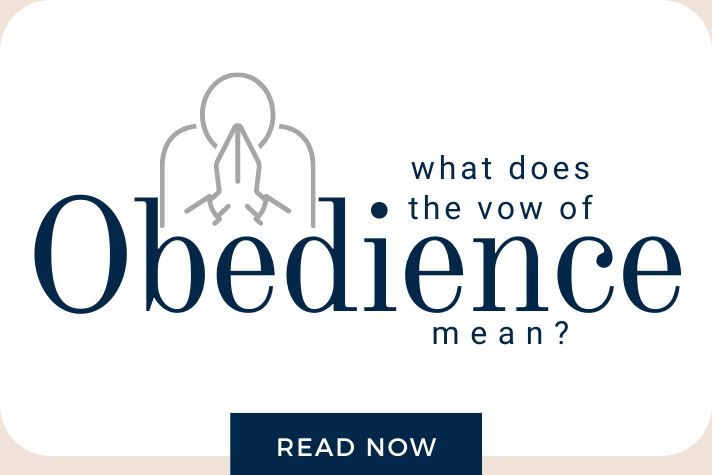What does the vow of obedience mean?
September 22, 2021

by Father Steven Huber, CSB
When a person is discerning religious life, these questions naturally come to mind. After all, when we hear the word “obedience,” it does have a tendency to strike some fear into our hearts and minds. After all, we’ve heard many times that to obey one’s parents is to do whatever they tell you, without question. One might think that the vow of obedience is the same, and then ask: “Am I going to be expected to do whatever anyone tells me, without question? Could someone use the vow of obedience to get even with me if they don’t like me?”
The truth is, the vow of obedience is about much more than simply doing what one is told to do. Both Basilian Way of Life (BWL) and Basilian Customs speak of the vow of obedience as flowing from love. Obedience is a response to the Lord’s words “If you love me, you will keep my commandments” (John 14:15). In professing the vow of obedience, we first and foremost dedicate ourselves to obedience of the command of Christ “wherever he is to be found: In the Gospel, in the Church, in our communities, in our brothers, in the poor” (BWL 25).
Obedience seeks to help us to carry out the will of God in all things. The Basilian Way of Life instructs us that the first place we should seek the will of God is in the Holy Scriptures. It is in the Scriptures, the Word of God, that we find the Lord’s teaching, by which, we are called to live (BWL 27). After the scriptures, we are called to listen to and obey the voice of Christ in the Church, which is present in the hierarchy, who teach and govern, and in those we serve, especially the poor (BWL 28).
This love for Christ and his commands naturally extends to love of our brothers in community, including those who are in positions of authority. At the same time, those in positions of authority are called to show generous love to those entrusted to their care, so that obedience may be lived out in this same spirit of love (Customs, D.03). When lived in this way, obedience does not have to be burdensome. It become less about responding to demands, and more about seeking the will of God in all things.
It is in seeking the will of God that dialogue becomes a part of our living of the vow of obedience. The Basilian Way of Life states that we should be ready to go wherever we are sent, willing to accept any renunciations involved. But we ought also to be free and open in making known to our superiors our interests and abilities, together with our hopes and fears about appointments. With this two-fold freedom the community can be truly responsive to the Holy Spirit (BWL 29).
Above all, the obedience we profess is a response to the love of God, poured into our hearts through God’s grace. When lived in this way, obedience is not burdensome. Rather, it helps us to grow in love, and to grow closer to God, through our willingness to live out his commands.
Categories
Discerning, a Vocations BlogGeneral News
Stirrings
Uncategorized
What’s seminarian life like?
by Father Eduardo Rivera, CSB “[The scholastic’s] preparation should include experience in all the elements of Basilian life and is intended to supply the member with resources for the life […]
Read MoreWho is called to become a priest?
by Father Jim Stenberg, CSB I was an adult convert to the Roman Catholic Church. I often tell people that religion is like a childhood illness; when you catch it […]
Read MoreI’m interested in Religious Life, what should I do?
by Father Steven Huber, CSB One of the questions that is often asked is what a person should do if they feel a calling to religious life. How does one […]
Read MoreWhat are the signs of a vocation to the priesthood?
by Father Steven Huber, CSB “How do I know if I am being called to priesthood or religious life?” This question is very common among discerners. The answer to this […]
Read MoreHow do we live the vow of chastity?
by Father Kevin Mannara, CSB Religious life involves living out our baptism in a more intentional and publicly prophetic way. That is why we take vows, including one to be […]
Read More